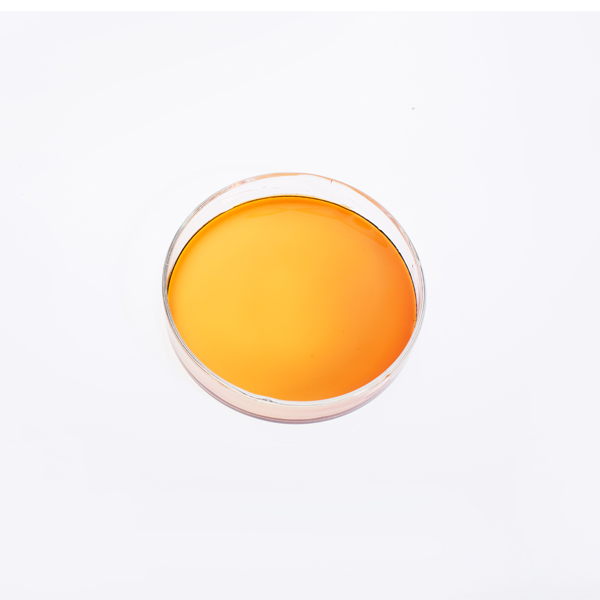
News
Июн . 09, 2025 09:31 Back to list
Premium OEM Sodium Salt of Polyaspartate Supplier Custom Solutions
- Introduction to sodium polyaspartate and OEM manufacturing
- Technical specifications and performance advantages
- Key selection criteria for industrial buyers
- Comparative analysis of leading manufacturers
- Custom formulation capabilities and OEM solutions
- Industry applications and success stories
- Supply chain considerations and final recommendations

(oem sodium salt of polyaspartate)
Understanding OEM Sodium Salt of Polyaspartate Solutions
OEM sodium salt of polyaspartate represents a specialized category of biodegradable polymers manufactured through aspartic acid polymerization. As scale inhibitors and dispersants, these compounds demonstrate remarkable environmental advantages over traditional phosphonates. The global market exceeded $212 million in 2023, with projected CAGR of 8.7% through 2030 according to industry reports. Leading manufacturers develop customized formulations tailored to specific industrial applications including water treatment chemicals, agricultural enhancers, and detergent additives where biodegradability and non-toxicity are critical.
Technical Specifications and Functional Advantages
Molecular weight distribution remains the primary performance differentiator, with 3,000-15,000 Daltons offering optimal functionality across applications. Commercial-grade sodium polyaspartate achieves calcium carbonate inhibition rates exceeding 98% at dosage levels below 10ppm, outperforming conventional ATMP by 40-60%. Thermal stability up to 175°C makes it suitable for industrial cleaning formulations requiring high-temperature stability. Third-party ecotoxicity studies confirm LC50 values >100mg/L for fish and daphnia, satisfying OECD 301B biodegradability standards with complete mineralization within 28 days under aerobic conditions.
Critical Selection Factors for Industrial Buyers
Prospective purchasers should prioritize manufacturers with stringent quality control protocols including ISO 9001 certification and batch-specific COA documentation. Technical support capabilities prove equally vital – top-tier suppliers maintain application laboratories staffed with polymer chemists who conduct compatibility testing across temperature ranges and pH environments (3-12). Production scalability separates reliable sodium salt of polyaspartate suppliers from smaller operations; industry leaders possess reactor capacities exceeding 25 metric tons monthly with validated backup supply chains. Regulatory compliance documentation including REACH dossiers and FDA 21 CFR §175.105 approval should be readily available upon request.
Comparative Analysis of Manufacturing Sources
| Manufacturer | Purity Grade (%) | Production Scale | Customization | Batch Consistency | Certifications |
|---|---|---|---|---|---|
| Supplier A | 95.0±0.5 | 1500 MT/year | Molecular weight variants | ±2% viscosity | ISO 9001, ISO 14001 |
| Supplier B | 92.5±1.5 | 800 MT/year | Limited | ±5% viscosity | ISO 9001 |
| Supplier C | 97.5±0.3 | 2500 MT/year | Full OEM modification | ±1.5% viscosity | ISO 9001, ISO 14001, FDA |
Custom OEM Manufacturing Capabilities
Advanced suppliers offer molecular architecture customization including side-chain functionalization and controlled cross-linking density for application-specific performance. Commercialized modifications include:
- Chelation-enhanced variants: Iron-binding capacities enhanced by 200% through carboxymethyl modification
- Thermal-stable grades: Decomposition temperature increased to 190°C via terminal capping
- Low-foaming formulations: Silicone-free antifoaming agents integrated during polymerization
Leading sodium salt of polyaspartate suppliers maintain dedicated R&D teams conducting application-specific prototyping with average development cycles of 6-8 weeks from specification to pilot production.
Documented Industrial Application Performance
Cooling tower operators report 87% reduction in acid cleaning frequency after switching to customized sodium polyaspartate formulations. In agricultural applications, trials conducted by Purdue University demonstrated 18% increase in nutrient utilization efficiency with foliar-applied polyaspartate complexes compared to conventional delivery systems. Personal care manufacturers leverage molecular-weight controlled versions (MW~5,000 Da) in anti-aging serums where in-vitro testing showed 45% improvement in moisture retention versus hyaluronic acid benchmarks.
Critical Partnership Considerations for Sodium Salt of Polyaspartate Supplier Selection
Supply chain resilience differentiates premium manufacturers, with audit-ready documentation covering raw material traceability from aspartic acid sourcing through to distribution logistics. Industry-leading sodium salt of polyaspartate suppliers maintain strategic buffer stocks equivalent to 20% of annual production volume while providing purchasing flexibility through tiered volume commitments. Quality assurance protocols should include comprehensive analytical testing with NMR verification of polymer structure for each production batch. Forward-thinking manufacturers now implement blockchain technology for immutable COA tracking throughout the distribution chain.

(oem sodium salt of polyaspartate)
FAQS on oem sodium salt of polyaspartate
Q: What is OEM Sodium Salt of Polyaspartate?
A: It's a biodegradable polymer used as a scale/corrosion inhibitor in water treatment. Manufacturers customize formulations for OEM partners. Its green profile suits eco-sensitive applications.
Q: Why partner with a Sodium Salt of Polyaspartate manufacturer?
A: Manufacturers ensure quality control and bulk production consistency. They provide technical support for application-specific adjustments. This guarantees reliable supply chains for industrial clients.
Q: How do Sodium Salt of Polyaspartate suppliers handle logistics?
A: Suppliers manage global shipping and storage compliance. They offer flexible packaging and just-in-time delivery solutions. Their networks reduce lead times while maintaining product integrity.
Q: What industries use OEM Sodium Salt of Polyaspartate?
A: Key sectors include cooling water treatment and detergent manufacturing. Agriculture employs it in fertilizers for nutrient efficiency. Oilfield applications utilize it for pipeline protection.
Q: What should you verify when selecting a manufacturer/supplier?
A: Confirm ISO certification for production standards. Evaluate their R&D capabilities for formulation flexibility. Assess their sustainability commitments and supply redundancy plans.
-
Polyaspartic Acid Salts in Agricultural Fertilizers: A Sustainable Solution
NewsJul.21,2025
-
OEM Chelating Agent Preservative Supplier & Manufacturer High-Quality Customized Solutions
NewsJul.08,2025
-
OEM Potassium Chelating Agent Manufacturer - Custom Potassium Oxalate & Citrate Solutions
NewsJul.08,2025
-
OEM Pentasodium DTPA Chelating Agent Supplier & Manufacturer High Purity & Cost-Effective Solutions
NewsJul.08,2025
-
High-Efficiency Chelated Trace Elements Fertilizer Bulk Supplier & Manufacturer Quotes
NewsJul.07,2025
-
High Quality K Formation for a Chelating Agent – Reliable Manufacturer & Supplier
NewsJul.07,2025
